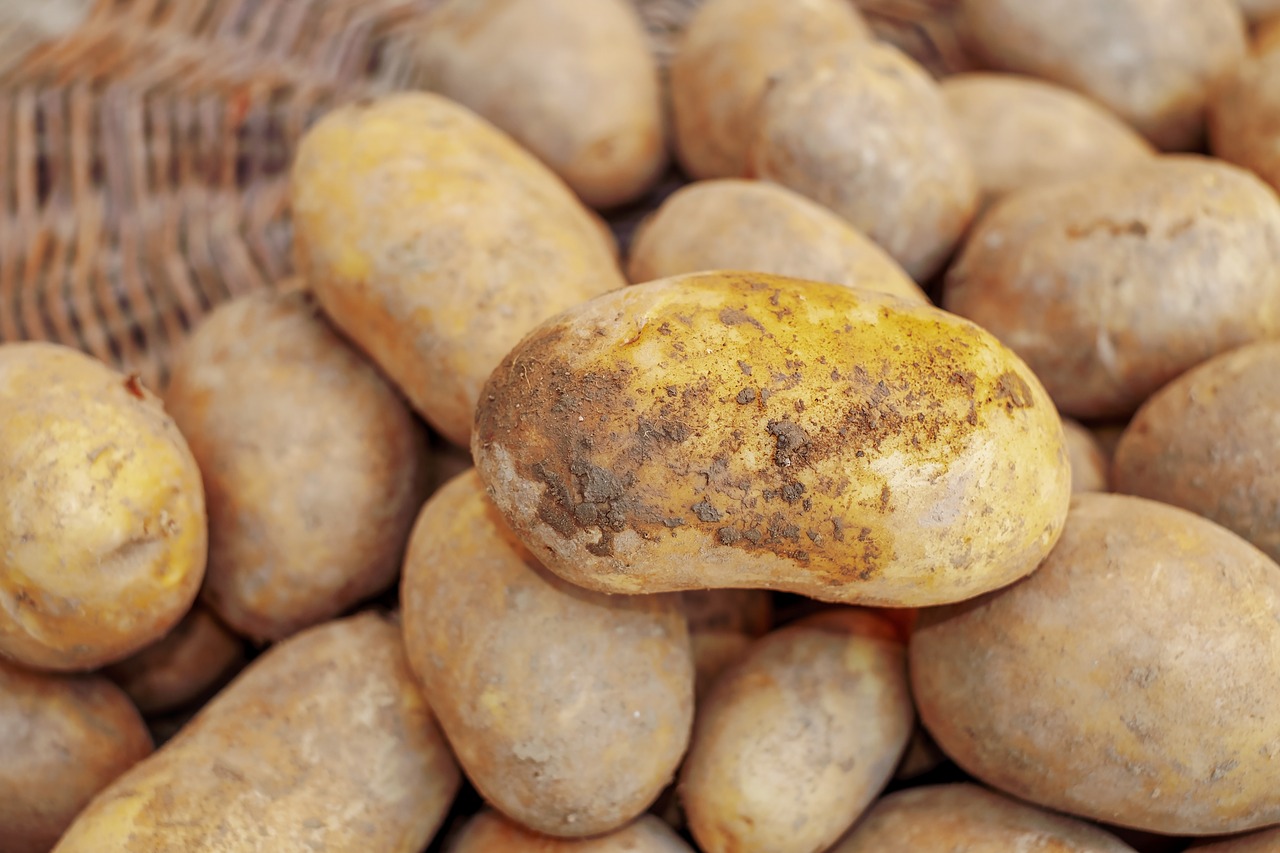Climate change threatens British-grown fruit and veg

Extreme and unpredictable weather, made more frequent by climate change, is putting future supplies of British potatoes at risk according to a new report.
The report, by the Climate Coalition, draws on research by the Priestley International Centre for Climate and says the UK can expect more frequent extreme weather events – including longer-lasting and more intense heatwaves, and a one-in-three chance of record-breaking rainfall hitting parts of England each winter.
Priestley Centre research associate Kate Sambrook and Professor Piers Forster contributed to the analysis with a chapter on Climate Change and the UK. The report says that the changing climate is posing a threat to the British fruit and vegetables because of more frequent and severe heatwaves and flooding. Last summer’s heatwave was made about 30 times more likely by climate change, according to the Met Office.
The damaging impact of climatic extremes could make British-grown potatoes and other fruit and vegetables harder to come by for shoppers, with more than half of UK farms saying they have been affected by a severe climatic event, such as flooding, in the past 10 years.
Lee Abbey, head of horticulture at the National Farmers Union, which recently announced its aspiration for UK farming to become net zero in its greenhouse gas emissions by 2040, said: “Farmers and growers are used to dealing with fluctuations in the weather but if we have two or three extreme years in a row it has the potential to put growers out of business.”
The report, Recipe for disaster: how climate change threatens British-grown fruit and veg, is being published as part of The Climate Coalition “Show The Love” campaign.
The Coalition is made up of more than 130 organisations representing over 15 million people, ranging from WWF, the Women’s Institute, RSPB, and National Trust, to aid agencies such as Christian Aid and CAFOD.
Fruit and veg growers suffer big losses
Potato yields were down on average 20% in England and Wales in 2018 compared to the previous season. Carrots (yields reportedly down 25-30%) and onions (reportedly down 40%) were also hampered in 2018 by warmer than average temperatures. Some English vineyards reported up to 75% of their crop being damaged by late spring frosts in 2017.
Cedric Porter, editor of World Potato Markets, said consumers were already having to deal with chips 3cm shorter as a result of last year’s drought and extreme heat because smaller potatoes were being harvested, reducing the length.
David Drew, Shadow Minister for Environment, Food and Rural Affairs, said: “Last year’s drought is indicative of the impact of climate change. Farming can only be made sustainable if we prioritise improving soil qualities, water management and encourage pollinators.”
Hugh Fearnley-Whittingstall, food writer and broadcaster, said: “If we are to protect our fantastic British fruit and veg for future generations, then the food industry and our Government have got to step up and make the kind of major changes – reducing emissions, cutting waste, supporting green energy, for example – that will have a profound effect.”
Update: see coverage in The Guardian, The Independent, Yorkshire Post, Yahoo UK & Ireland and MSN Food and Drink
